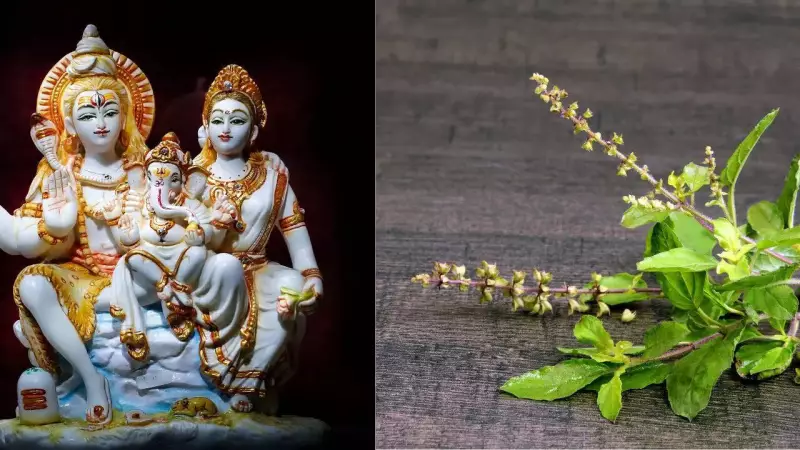
In Hindu religious practices, Tulsi, or Holy Basil, occupies a position of immense sacred significance. No puja is considered complete without the divine presence of Tulsi, which is deeply associated with Goddess Lakshmi, the consort of Lord Vishnu. The leaves symbolize purity, devotion, and divine blessing, making them essential for worshipping Lord Vishnu and his avatar, Lord Krishna.
The Forbidden Offering to Lord Shiva
Despite its widespread use, a significant restriction exists: Tulsi leaves should not be offered to Lord Shiva or Lord Ganesha. The roots of this prohibition are deeply embedded in ancient Hindu mythology. According to scriptures like the Shiva Purana, Tulsi is believed to be the earthly form of Goddess Vrinda, the devoted wife of the demon Jalandhar.
To protect the cosmic order, Lord Shiva slayed the asura Jalandhar. Upon learning of her husband's demise, the grief-stricken Tulsi, in her sorrow, denounced Shiva. She pronounced a powerful curse, declaring that no part of the Tulsi plant should ever be used in the worship of Lord Shiva. This was her profound refusal to bless his adoration with anything related to her being.
This mythological curse is the primary reason why Tulsi leaves are never offered to the Shiva Linga or an idol of Lord Shiva during rituals.
Why Lord Ganesha Does Not Receive Tulsi
The mythology surrounding Lord Ganesha's exclusion from Tulsi offerings involves a different narrative. It is believed that Tulsi once proposed marriage to Lord Ganesha. However, Ganesha was observing celibacy to fulfill his divine role as a guardian and respectfully declined her proposal.
This rejection angered Tulsi, leading her to curse Lord Ganesha. Following divine intervention, a resolution was reached where Tulsi was transformed into the holy basil plant, and a decree was established that Ganesha would not receive Tulsi leaves in worship.
Consequently, even though Tulsi is universally respected, it is explicitly avoided during Ganesha Puja. Instead, devotees offer Dhruva grass and red Jaswanti flowers to the elephant-headed god.
Tulsi's Sacred Bond with Lord Vishnu and Krishna
In contrast, the connection between Tulsi and Lord Vishnu is profoundly positive. Texts like the Padma Purana and Skanda Purana firmly establish that Tulsi worship is primarily associated with Lord Vishnu and his avatars. Tulsi is revered as an incarnation of Goddess Lakshmi herself.
This is why Tulsi is offered to Lord Krishna with great devotion. Scriptures state that neither Krishna nor Vishnu accepts any offering that does not include Tulsi leaves. The plant is considered dearer to the Lord than gold or jewels, embodying divine qualities and blessings.
Offering Tulsi leaves with love and devotion is believed to bring a worshipper closer to Krishna, ensuring spiritual progress and divine grace. The Padma Purana also corroborates the narrative of Tulsi's curse upon Lord Ganesha, reinforcing why the leaves are unsuitable for his worship.





